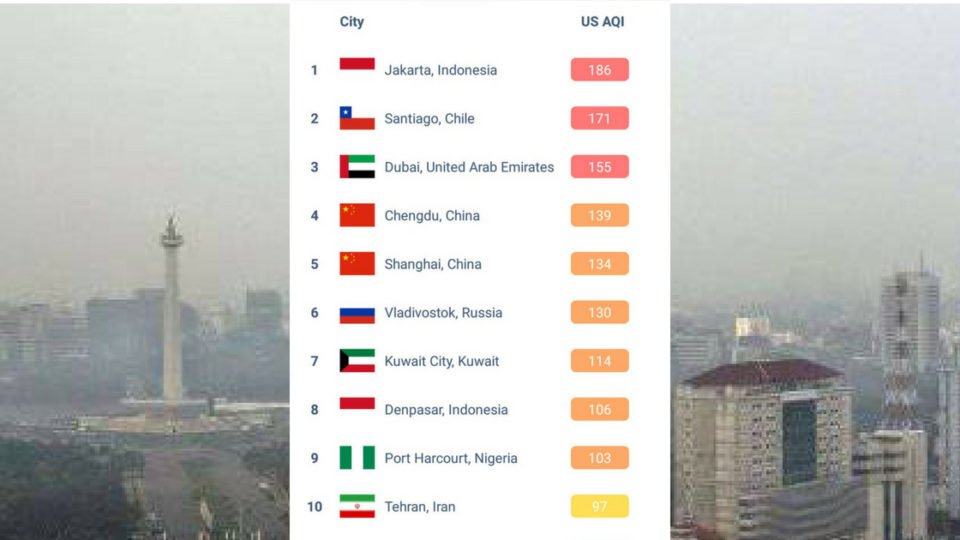On top of concerns about the capital’s notorious traffic and the stench emanating from a fetid canal near their dorm, top athletes from around the region might have another noxious environmental hazard to contend with while competing at the Asian Games in Jakarta next month — some of the worst air pollution of any city on the planet.
Jakarta has intermittently appeared on rankings of cities with high levels of air pollution in the past, but the atmosphere in the capital this week has been notable for reaching the #1 spot multiple times on the major cities ranking of air-quality monitoring site Air Visual.
https://twitter.com/GreenpeaceID/status/1022285199617355776
As shown by the Twitter thread from Greenpeace above, Jakarta was ranked #1 this morning with an air quality index (AQI) rating of 184. It was also at #1 yesterday morning with an AQI of 183. And, as you can see in the tweet from today, Jakarta was not the only Indonesian city to make the list this morning — the capital of vacation getaway Bali, Denpasar, ranking 10th with an AQI of 104.
AQI is a standardized measurement based on relative levels of five major air pollutants: ground-level ozone, particle pollution (also known as particulate matter), carbon monoxide, sulfur dioxide, and nitrogen dioxide. AQI levels between 150 and 200 are classified as “unhealthy”.
The Greenpeace tweets advise residents of the city to use N95-level maskers (face masks) as the normal cheap mouth coverings used by most Jakartans are able to do very little when it comes to filtering out harmful particulates.
A large percentage of the air pollution in Jakarta comes from approximately 3.5 million cars and 14 million motorcycles that ply the capital’s roads each day. The government is enacting several temporary policy fixes to limit the number of cars in the roads during the Asian Games, including an expansion of the odd-even traffic rule and closing three dozen schools, but even if those changes somehow manage to get pollution levels down to acceptable levels for competing athletes, Jakartans will likely be needing those N95 maskers again soon after.




